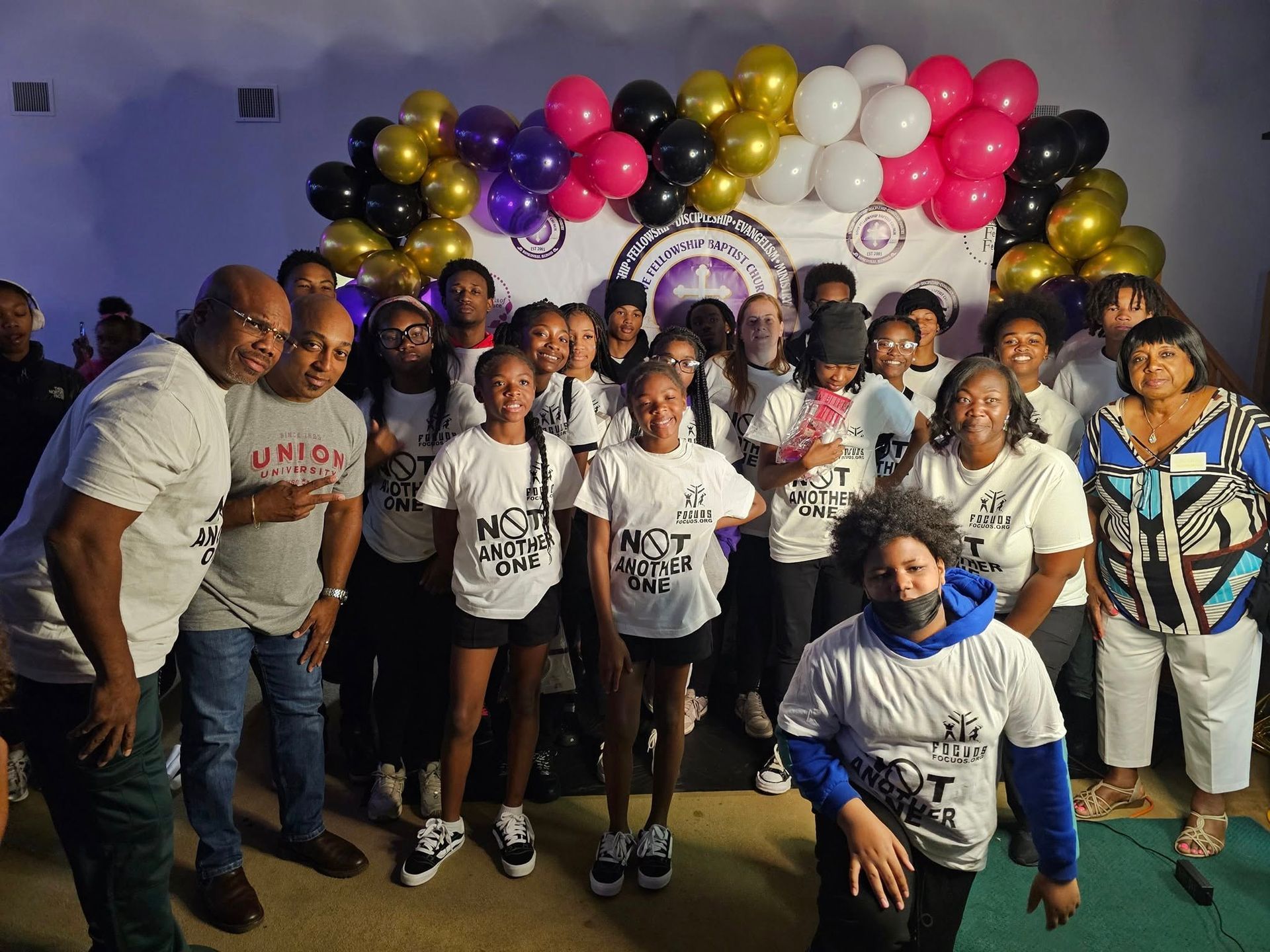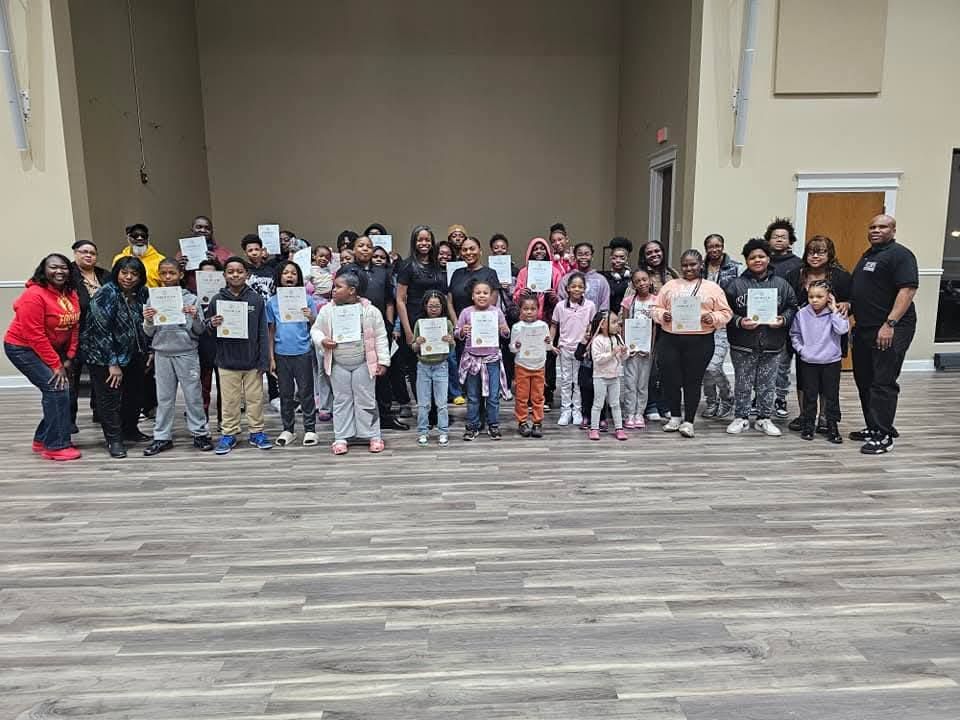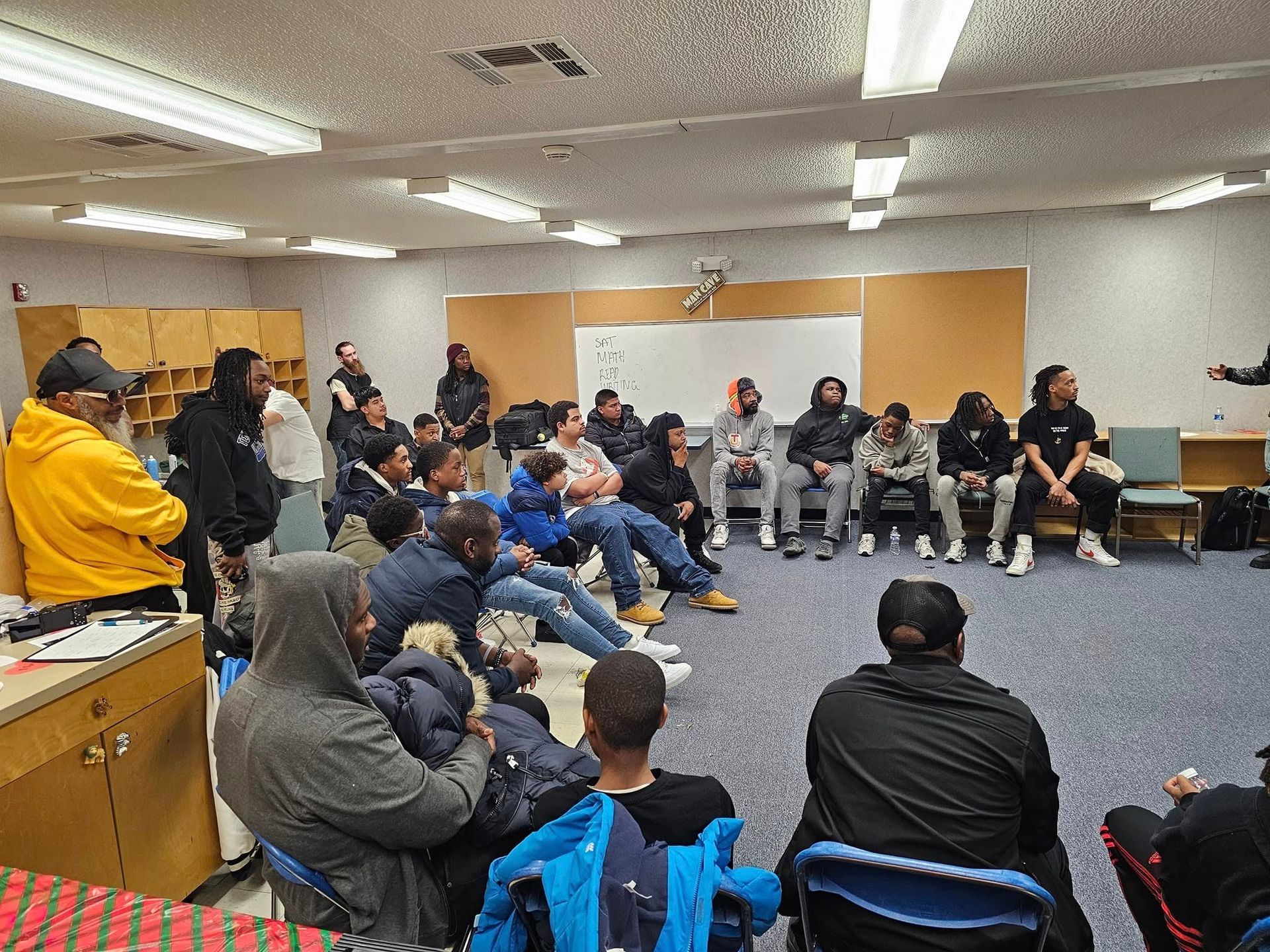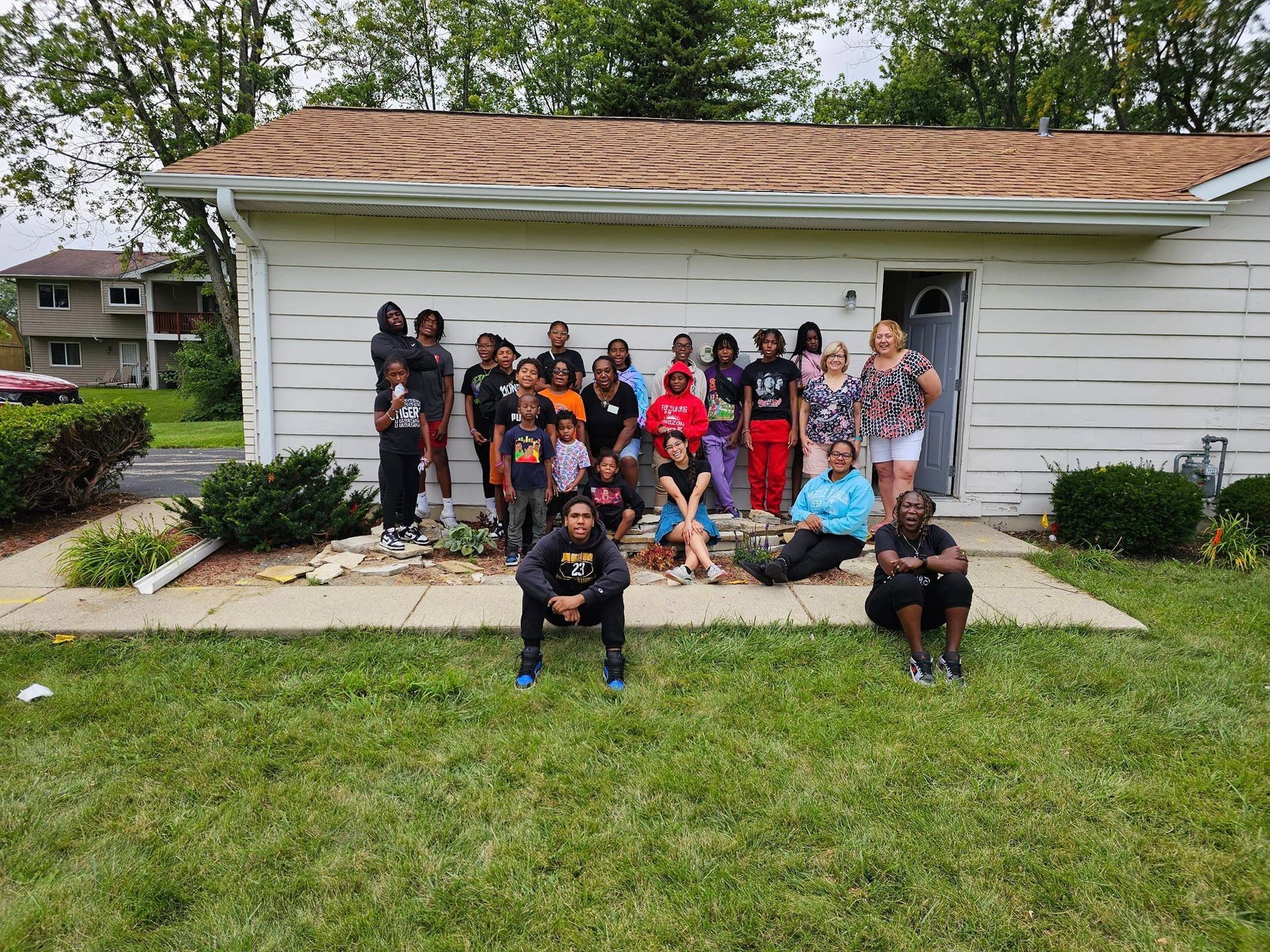F.O.C.U.O.S. is a 501(c)(3) non-profit organization in Will County Dupage Township. Our mission is to empower underserved and at-risk individuals by helping them realize their potential. We address the lack of positive mentorship and programming, focusing on adolescents, youth, and young adults. Our programs offer workshops, trainings, discussions, and outings, driven by dedicated volunteers from the community.
Welcome to F.O.C.U.O.S.
Empowering Youth & Transforming Communities
At F.O.C.U.O.S. (Focus On Critically Using Our Skills), we believe in empowering youth to reach their full potential through mentorship, education, and community engagement. Our mission is to break barriers, eliminate the school-to-prison pipeline, and provide life-changing opportunities for underserved and at-risk youth.
Since our founding in 2019, we’ve been dedicated to serving youth and families in Bolingbrook, IL, and the surrounding areas. We offer programs designed to build confidence, resilience, and self-sufficiency — from mentorship to life skills training to academic support and entrepreneurial guidance. Together, we are creating the next generation of leaders, thinkers, and problem-solvers.
Martin Luther King JR.
Dream Celebration
Monday, January 19, 2026
Doors open at 11:00 am - 2:00 pm
201 Canterbury Ln. Bolingbrook, IL 60440
Community Center Room A
What is F.O.C.U.O.S.?
F.O.C.U.O.S. is a nonprofit organization committed to serving youth ages 9–24 from underserved and often overlooked communities, especially those facing challenges such as:
- Poverty or single-parent households
- Exposure to the juvenile justice system
- Struggles with mental health or substance abuse
- Lack of access to quality education and positive role models
We provide supportive, community-based programs that focus on:
✅ Mentorship & tutoring
✅ Mental health & trauma support
✅ Drug prevention education
✅ Life skills, leadership, and career development
✅ Community service and court diversion programs
Our Mission
Our mission at F.O.C.U.O.S. is simple: To empower youth to critically use their skills to shape their futures. We aim to address the systemic challenges faced by youth in underserved communities, particularly low-income and single-parent households. With a focus on providing resources, mentorship, and opportunities, we help youth break free from limiting circumstances and chart a path to success.
Our Programs
F.O.C.U.O.S. offers a range of programs designed to meet the diverse needs of youth and young adults. These programs focus on academic achievement, life skills development, mental health support, and community service.
F.O.C.U.O.S. on the Horizon (Ages 9–15)
A mentorship-based program for younger youth, focusing on building life skills such as communication, conflict resolution, and self-confidence. Through weekly discussions and monthly group outings, youth are taught how to navigate challenges like bullying, peer pressure, and family dynamics.
F.O.C.U.O.S. on the Future (Ages 16–24)
Designed for older youth, this program provides entrepreneurial education, job readiness training, and life skills development. Participants receive hands-on support with building resumes, financial literacy, and even starting their own businesses.
F.O.C.U.O.S. on the Prize (Ages 12–18)
A unique intervention program for youth facing court-ordered community service. This program combines legal counseling, anger management, and social skills training to give youth a second chance while ensuring they gain the tools needed to succeed in life.
F.O.C.U.O.S. on the Outlook
A re-entry program for individuals returning to the community from the correctional system. It offers case management, job placement assistance, educational assessments, and advocacy services to ease the transition back into society.
Why F.O.C.U.O.S. Matters
Breaking the School-to-Prison Pipeline
Through mentorship and education, we aim to prevent youth from becoming part of the criminal justice system. We provide the resources and support they need to stay in school, excel, and succeed.
Addressing Mental Health and Trauma
Many of the youth we serve face mental health challenges due to past trauma, and we provide a safe space for healing, resilience, and personal growth.
Community Engagement
Our programs are built on the idea that strong communities raise strong individuals. We work with local schools, businesses, and organizations to create opportunities for youth to engage with their community, develop a sense of responsibility, and give back through community service.
A Supportive Network
F.O.C.U.O.S. is more than just a program — it’s a community of mentors, volunteers, and advocates who are committed to helping youth thrive. Through positive connections, our youth are empowered to believe in themselves and their potential.
How You Can Help: Get Involved!
We invite you to partner with us in empowering the next generation. Whether you are an investor, sponsor, volunteer, or a parent of a youth participant, there are many ways you can contribute to the mission of F.O.C.U.O.S.
Investors & Sponsors
Your support enables us to expand our programs and provide the resources necessary to serve more youth. Whether through financial donations, in-kind gifts, or corporate sponsorships, you help us continue our work and ensure we can reach those who need it most.
Volunteers
Volunteers are the heart of F.O.C.U.O.S. Whether you want to become a mentor, help with fundraising events, or assist with program activities, we’d love to have you on board.
Parents & Families
We encourage you to enroll your child in one of our programs and join us in providing the best possible opportunities for their future. Your involvement is key to their success.
Get Involved Today!
Donate
Your generous donations help provide the resources, materials, and support that our youth need to succeed. Every dollar makes a difference! Donate Here
Volunteer
Become a mentor or assist with events and programming. Contact us today to learn how you can get involved! Volunteer with Us
Become a Sponsor
Your company can make a difference by supporting F.O.C.U.O.S. through sponsorship. Find out how we can partner for a stronger future. Become a Sponsor
The numbers you need to know
At F.O.C.U.O.S., we are proud of the measurable impact we’ve made in the community. Our mission to empower at-risk youth, break the school-to-prison pipeline, and provide life-changing opportunities is reflected in the following achievements:
10,000+ Hours of Community Service
Our youth and volunteers have dedicated over 10,000 hours of service to local communities, demonstrating leadership, responsibility, and a commitment to giving back.
1,000+ Youth Participants
Over 1,000 youth have benefited from our programs, gaining essential life skills, educational support, and mentorship. These young individuals are shaping their futures and developing into the leaders of tomorrow.
800+ Households Impacted
F.O.C.U.O.S. has positively impacted over 800 households, providing support not only for youth but also for their families, creating stronger, more resilient communities.
2,000+ Tutoring Sessions
We’ve provided over 2,000 tutoring sessions, helping students improve their academic performance, develop critical thinking skills, and stay engaged in school.
F.o.c.u.o.s. blogs











